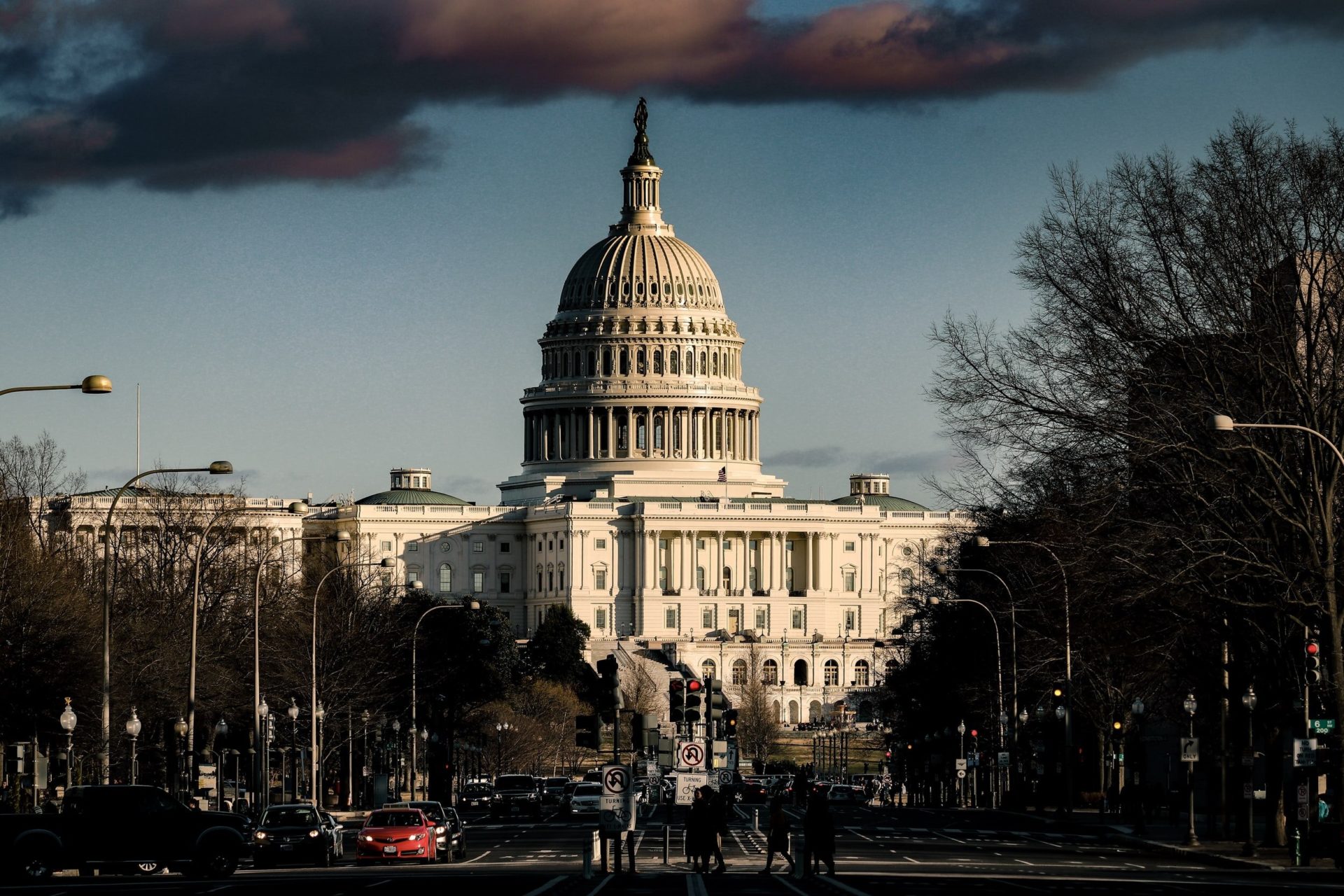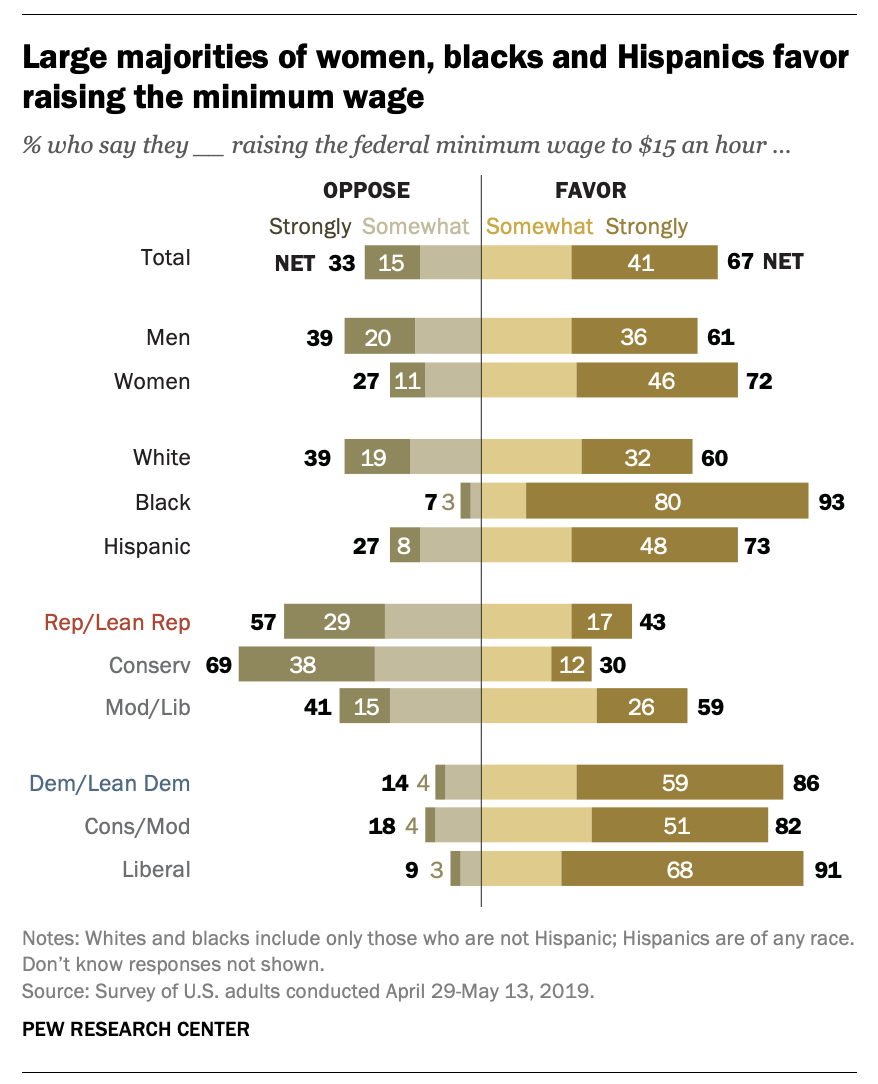
Late last Thursday night, Democrats’ push to pass a $15 minimum wage within President Biden’s 1.9 trillion dollar COVID-19 relief bill suffered a devastating setback from an unlikely source: the Senate parliamentarian.
An unelected official that most citizens have never heard of, the parliamentarian is a nonpartisan arbiter of the many rules and procedural actions that allow the Senate chamber to run smoothly. Often a quiet, but crucial, presence in the background of daily Senate happenings, they rarely enter the limelight except when their determinations butt up against prominent legislative agendas. The last time the parliamentarian (colloquially known as “parls”) gained public recognition was in 2001 when then-parliamentarian Robert Dove was asked to leave his post by Majority Leader Trent Lott (R-Miss.) and GOP leadership after hampering President Bush’s budget and tax cut proposals.
Today, the Senate parliamentarian is Elizabeth MacDonough, who was named to the job in 2012 and also the first woman in the role. The last time MacDonough entered the news was in 2015 during the GOP’s push to dismantle elements of Obamacare, particularly the rolling back of the individual mandate. While she never formally blocked legislation from entering the floor, reporting at the time revealed that GOP leadership conferred with MacDonough on the limit they could repeal the mandate. After consorting with her, Republicans ultimately decided to leave the mandate intact but found a workaround by reducing the penalty to $0, effectively nullifying the law.
But just like in 2001 when Robert Dove stymied the Bush tax agenda, the Senate currently has an even 50-50 split between the two parties, thus elevating the role of the parliamentarian when it comes to decisions that require simple majorities. This even divide is significant because President Biden’s $1.9 billion COVID-19 plan – including the 15 dollar minimum wage hike – was designed to move through Congress through a special legislative process called “budget reconciliation.” Created by the Congressional Budget Act of 1974, the reconciliation process was explicitly designed to expedite legislation that had a barring on the national budget, debt, and taxes. Most importantly, bills passed through reconciliation only need simply majorities to pass and are not subject to the filibuster.
Congress has enacted 21 budget reconciliation bills since 1980, but over time, the parameters of what sorts of bills could be considered for reconciliation have become increasingly more nebulous. From initially being used to enact major spending cuts in President Reagan’s first year in office in 1981, in recent years the process has been used to amend the Affordable Care Act and modify the federal student loan program under President Obama.
So when President Biden and the Democrats added a 15 dollar wage increase to their COVID-19 relief bill, they were hoping that the wide-reaching economic changes of the raise would still qualify to fall under reconciliation even if it did not adhere to strict budgetary standards the same way as traditional Reagan Era tax cuts. There is evidence to support the idea that a wage hike would have a measurable impact on the national budget deficit, thus qualifying for reconciliation. In early February, the Congressional Budget Office released a report that estimated that “from 2021 to 2031, the cumulative pay of affected people would increase, on net, by $333 billion” as the wage increase is phased in overtime.
Furthermore, a Pew Research study in 2019 found that two-thirds of Americans favored raising the federal minimum wage to 15 dollars an hour, with 41% saying they “strongly favor” such an increase.

Leading up to the parliamentarian’s ruling, the Democrats were confident. Last Tuesday, two days before MacDonough’s ruling, Senator Bernie Sanders (I-Vermont), chairman of the Budget Committee and a vocal advocate for the wage increase, signaled to reporters that he was confident McDonough would allow the wage hike to be included.
“She has listened attentively to our position. She’ll listen attentively, I’m sure, to the other side’s point of view,” Sen. Sanders told The New York Times. “We believe and hope she will rule in our direction.”
But then, MacDonough ruled against the provision, saying that the wage increase did not fall within the strict parameters of budget reconciliation. Her determination not only dealt a decisive blow to Biden’s short-term economic agenda but also set new limits on how the Democratic-controlled Senate will be able to pass their most ambitious policies moving forward.
The impact of the decision quickly reverberated throughout the Hill. Democrats reacted anywhere between subdued disappointment to outright anger, while Republicans lauded MacDonough as a nonpartisan arbiter. The most progressive wing of the Democratic party was particularly outraged, with some progressive figures quickly asking for MacDonough to be dismissed from her post. “Abolish the filibuster. Replace the parliamentarian,” tweeted Rep. Ilhan Omar (D), a progressive member of ‘The Squad.’
Abolish the filibuster.
Replace the parliamentarian.
What’s a Democratic majority if we can’t pass our priority bills? This is unacceptable.
— Ilhan Omar (@IlhanMN) February 26, 2021
Despite the setback, Democrats vowed to continue to fight. House Speaker Nancy Pelosi released a statement reiterating that a “minimum wage hike is necessary” and the House kept the language concerning the minimum wage, which passed early Saturday morning.
By keeping the minimum wage provision, Speaker Pelosi essentially passed the buck to Senate Majority Leader Chuck Schumer. With the bill in Schumer’s court, he arrived at a critical juncture: He could find a means to circumvent the parliamentarian’s ruling or tackle the minimum wage another day.
Find A Workaround
Once the parliamentarian nixed the wage hike in the House bill last week, Senate Budget Chair Bernie Sanders (I-Vermont) along with Senate Finance Chair Ron Wyden (D-Oregon) quickly pivoted to craft a backdoor approach to increase the minimum wage. Similar to how Republican’s created a provision to zero-out the individual mandate penalty, their “Plan B” was to add a five percent tax penalty to large corporations if they paid workers less than a certain amount, scaled over time.
It is time for the owners of the nation’s most profitable corporations to pay their workers a living wage. That isn’t a radical idea in the richest country in the history of the world. pic.twitter.com/z8oGpfO31y
— Bernie Sanders (@SenSanders) February 26, 2021
However, many policy advisers and economists said that the new provision would be difficult to implement, and many feared that large corporations would simply reclassify their workers as contractors to avoid any potential fines.
By Sunday, The Washington Post reported that both Senators were walking away from their backup effort.
Eliminate the Filibuster
One of the central reasons that President Biden and the Democrats drafted COVID-19 relief through budget reconciliation was that it barred the use of the filibuster: an archaic Senate rule which allowed the minority to block the legislative agenda of the majority. Arguably, the very fact that the Biden administration pursued a minimum wage increase through reconciliation was an acknowledgment of the flawed nature of the Senate. It was essentially saying that would be impossible in today’s polarized environment that any sort of legislation will receive the necessary 60 votes.
Eliminating the filibuster has grown to become a key fight of the progressive-liberal wing of the Democratic party; however, moderate Democrats like Sen. Joe Manchin III (D-West Virginia) and Sen. Kyrsten Sinema (D-Arizona) have been vocal in their opposition to removing the filibuster. Any chance the Democrats have to repeal the filibuster will come from all 50 Senators being on board. When asked on Monday whether he would reconsider the filibuster, Senator Manchin replied in the strongest terms: “Jesus Christ, what don’t you understand about ‘never’?”
Vice President Harris Overruling the Parliamentarian
Historically, the VP’s public presence in the Senate is to break tied votes, but as the presiding officer of the Senate, Vice President Kamala Harris has the power to overrule the parliamentarian and include the minimum wage hike in the COVID-19 relief. This maneuver isn’t unheard of, Democrats overruled the parliamentarian in 2013 when they encountered a filibuster for several court nominations.
However, the White House has signaled that it does not want to overrule MacDonough’s determination. A lifelong Senator, President Biden was not willing to ignore Senate procedure to jam through a minimum wage hike opposed by the entirety of the GOP. The move would have likely been interpreted as the antithesis of the unity and decency that underscores his presidency.
This ethos was reiterated from the briefing room. “That’s not an action we intend to take,” Jen Psaki, the White House Press Secretary, said on Monday. However, she reiterated that Biden was intent on passing during his administration. “It just remains a commitment and something he will use his political capital to get done.”
Firing the Parliamentarian
The most drastic move, the Parliamentarian technically serves at the pleasure of the Secretary of the Senate, who, in turn, serves at the behest of Senate Majority Leader Chuck Schumer. If he wanted to, Schumer could eliminate the parliamentarian and replace her with a referee who would be more willing to rule in their favor. From an inside baseball standpoint, it would allow Senator Schumer to shoulder the blame, thus removing the onus of responsibility from the White House and incredulous moderates like Joe Manchin.
There is some precedent for this. When the Republicans fired the previously mentioned Robert Dove in 2001, there was barely any lash-back from the other side of the aisle. Democrats expressed their discontent through a variety of press releases and public statements, but Dole’s firing quickly entered the rearview mirror as the Senate passed Bush’s tax cuts and the incessant news cycle washed public outrage away.
Fight Another Day
With a looming March 14 deadline when enhanced unemployment benefits expire, it appears that President Biden and Democratic leadership have opted to avoid any drawn-out battle and take up the fight for a minimum wage another day. Biden has made it clear that his main priority is COVID-19 relief – wage hike or not.
“The president’s focus this week and in coming weeks, until it’s passed, is on the American Rescue Plan,” White House Press Secretary Jen Psaki said Monday. “It’s absolutely critical Congress act, and we certainly hope they do that as quickly as possible.”
When Jon Ossoff and Raphael Warnock won their Senate seats and secured a Dem.-favored 50-50 split in the Senate, many thought that the Biden administration would be able to pass its most ambitious policy agendas with or without the cooperation of their Republican counterparts. In many respects, this preliminary skirmish to include a minimum wage hike has outlined the limitations of Democratic legislating. Some politicians and political pundits have quickly tarred the retreat as an example of Biden’s inability to swiftly wield his executive power; however, as with most subjects concerning politics, the answer is not as simple. This episode has shown that the next four years of legislating will not be decided by two great parties clashing against one another but in the details. It’s not simply Rs and Ds, but also the individual powers of moderates, vice presidents, and yes, sometimes parliamentarians.
______________________________________________________________________________________________________________________

James Meadows
The managing editor of Smerconish.com, James joined the team after a year of service working as a creative writing fellow at a high school in North Philadelphia. He graduated from the University of Pennsylvania in May of 2019, receiving the Carolyn Marvin Award for “advancing our understanding of the importance of free speech and assembly in a democratic society.” A passionate journalist, James has done stints with The Philadelphia Inquirer, The Philadelphia Citizen, WHYY, and others. Today, he is in charge of managing the website, preparing the morning newsletter, and editing all of the written submissions from the Smerconish community!
______________________________________________________________________________________________________________________






